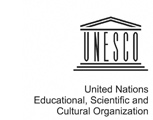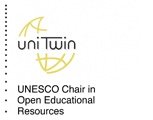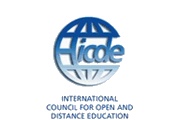A Study of Teachers’ Informal Learning in the Workplace
November 5, 2008
Annemarieke Hoekstra · Northern Alberta Institute of Technology, Canada
This presentation focuses on the research perspective and methodology of two studies, conducted in the Netherlands, which were aimed at describing how experienced secondary school teachers learn at work in an informal learning context. Informal learning is conceptualized as taking place in a work context characterized by a lack of systematic support for learning. Learning is understood as: undertaking activities that lead to a change in cognition and/or behaviour. The purpose of the first study was to explore how experienced teachers learn through the activities they undertake when teaching. Four teachers participated in this study that involved both observational and interview data over the period of a year. Our second study was aimed at studying the relation between teachers’ activities and learning outcomes, i.e. changes in cognition and/or teaching behavior, as they occurred over the course of a year. The presentation focuses on the research methods: specifically instruments and data analysis.
SIMILAR SESSIONS
State of the Nation 2023: K-12 E-Learning in Canada
Barbour, Michael; LaBonte, Randy
The 2023 issue of the State of the Nation: K-12 E-Learning in Canada report marks its sixteenth year, and the eleventh year of the Canadian eLearning Network's (CANeLearn) support of this research. The report continues ...
Match: K-12
Sense of Irony or Perfect Timing: Examining the Research Supporting Proposed e-Learning Changes in Ontario
Barbour, Michael; LaBonte, Randy
Only weeks before the 2019 annual meeting of the American Education Research Association (AERA) was held in Toronto, Ontario, the provincial government announced a major reform of education for that province entitled ...
Match: K-12
Distance, Online and Blended Schools: Where Are We? What Do We Know?
Clark, Tom; Barbour, Michael
In this session, Tom Clark and Michael Barbour will describe trends for the future of K-12 distance, online and blended learning highlighted in their recent edited book. From exploring what educators in North America ...
Match: K-12
State of the Nation: K-12 E-Learning in Canada
Barbour, Michael; LaBonte, Randy
The State of the Nation: K-12 E-Learning in Canada report continues to be Canada's unique benchmark for the expanding use of technology-supported blended and online learning in Canada. This ninth edition of the annual ...
Match: K-12
State of the Nation: K-12 E-Learning in Canada
Barbour, Michael; LaBonte, Randy
The 2018 issue of the State of the Nation: K-12 E-Learning in Canada report marks its 11th year, and the sixth year of the Canadian eLearning Network's (CANeLearn) support of this research. The report continues to be ...
Match: K-12
State of the Nation 2013: K-12 Online Learning in Canada
Barbour, Michael
This presentation will highlight the details of the sixth annual State of the Nation: K-12 Online Learning in Canada report. Some of these highlights include:\n\n- during the 2011-12 school year there were an estimated ...
Match: K-12
Assessing the Quality of K-12 Online Content: A Sample Assessment Rubric
Jongedijk, Lara
What factors create an effective online course from a “content” point of view? This session will highlight the assessment criteria and the review process that was used to review the content of K-12 online learning ...
Match: K-12
Building Student Networks: Towards a Connectivist Analysis of Classroom Learning Environments
Ardito, Gerald
This presentation describes a pilot program that sought to apply key concepts and research in Distance Education to a blended secondary Science classroom. It involved a cohort of 8th grade Biology students who ...
Match: K-12
State of the Nation: K-12 E-Learning in Canada
Barbour, Michael; LaBonte, Randy
The 2017 issue of the State of the Nation: K-12 E-Learning in Canada report marks its 10th year, and the fifth year of the Canadian eLearning Network's (CANeLearn) support of this research. The report continues to be ...
Match: K-12
Multiply K-12 OER
Blomgren, Connie; Roberts, Verena
For various reasons including costs, it is expected that the use of Open Educational Resources (OER) within K-12 is likely to take hold rapidly. Educating in-service teachers through the Multiply K-12 OER podcasts and ...
Match: K-12










